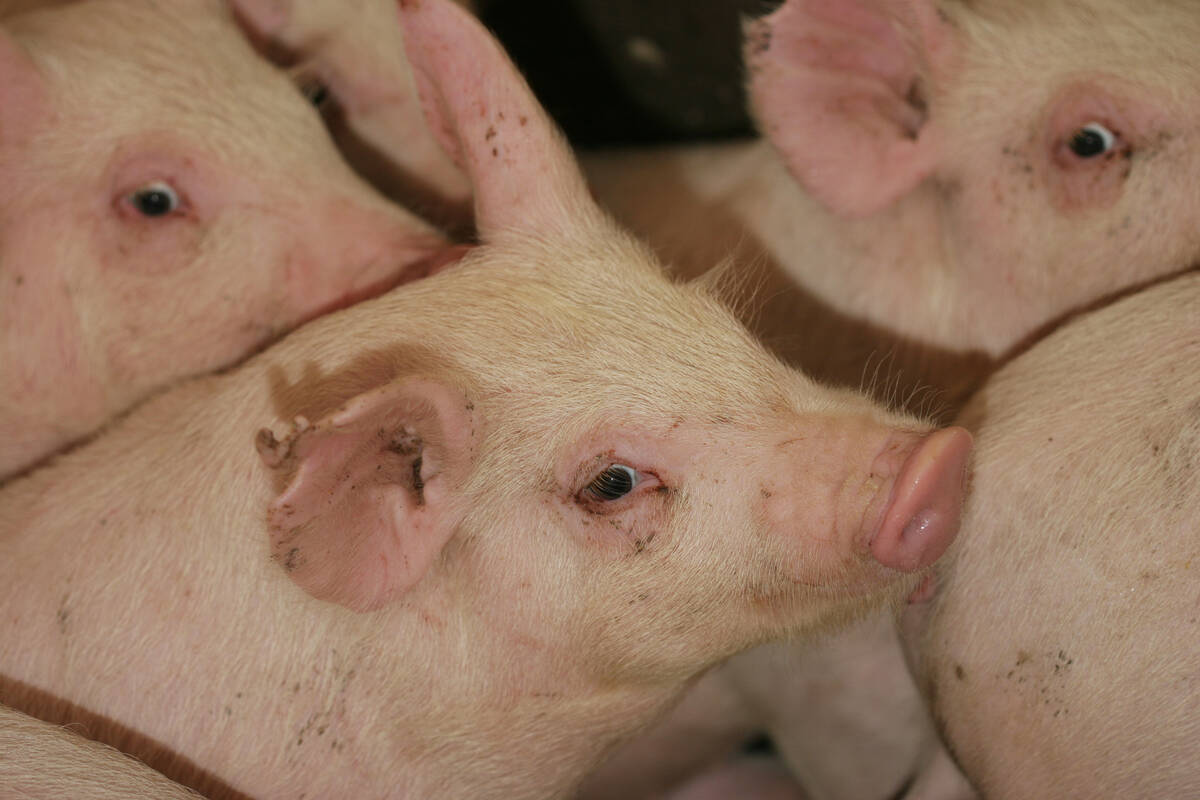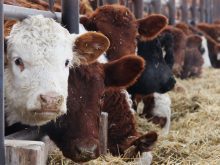PHOENIX, Ariz. – Mandatory country-of-origin labelling is now United States law, so food producers must deal with it.
A COOL panel that included retail and packer representatives said the bill adds to their workload and does not improve profits. The international markets committee at the National Cattlemen’s Association convention in Phoenix, Arizona, heard some of the logistical problems of sorting and labelling commodities covered by the law.
Ken Bull, cattle procurement manager for Cargill Beef, and Deborah White, counsel for the Food Marketing Institute that represents most U.S. food retailers from small family stores to chains like Wal-Mart, said it has taken 10 years to create this law and now they have to figure out how to work with it.
Read Also

The Western Producer Livestock Report – September 25, 2025
The U.S. national live price average for barrows and gilts was $81.21 Sept. 17. It was $78.37 Sept. 9. U.S. hogs averaged $106.71 on a carcass basis Sept. 17, up from $106.10 Sept. 9.
“This law has been debated for years and years. Let it go into effect and let’s deal with it,” White said.
At the packer level the sorting goes beyond separating the homegrown animals from the foreigners.
At one time a packer had three grades of Choice, Select and no roll. Now there are more categories within the grades as well as numerous quality branded programs where cattle have to be sorted according to where they fit.
Cargill may have up to 34 different sorts when there used to be 10. Under COOL, that could expand to 46 different sorts and since this particular requirement adds no value, the company has changed some of its process.
Cargill has designated one plant in the north for Canadian cattle and one in the south for Mexican cattle.
The rest will handle A label only, that is, cattle born, raised and processed in the U.S.
There will be no premium brands attached to B label cattle and simple grades like Choice and Select will be used. However, the company can export B label beef to Canada or Mexico or send it to food service where labels are not required.
Bull does not know what the final discounts will be until the retail trade decides what it is going to do and how much foreign product it might accept.
Only eight percent of the supply comes from Canada and Mexico and as people become familiar with the workings of the law, price differences may narrow.
Retailers represented by the Food Marketing Institute are at various levels of preparation. They preferred a voluntary program.
“We still, as an industry, despite all the machinations and rule making changes that have gone on, believe that country-of-origin labelling, just like any marketing program, should be done on a voluntary basis,” said White.
“One of the largest retailers has 300 people working on this for a long time. That is a lot of brain power that could be going toward something a lot more useful than country-of-origin labelling,” she said.
The institute’s consumer marketing data says people are looking for reasonable prices and high quality rather than country of origin.
Seafood and fish have been labelled since 2004. At first customers were shocked to learn how many different countries supply fish, but their concerns faded.
Adding more labels is a massive job for retailers, who must keep daily records of origins for all fresh meats, produce, nuts and ginseng. They must keep A label meats separate from the other categories. Case-ready meat, where the processor does all the packaging, makes it easier for retailers to keep packages separate and marked by origin.
A produce department might have 500 to 800 different items. Loose mushrooms, bulk nuts, string beans and corn on the cob are difficult to track and label.
Some large firms have considered having separate warehouses for domestic and imported food to simplify the sorting.















